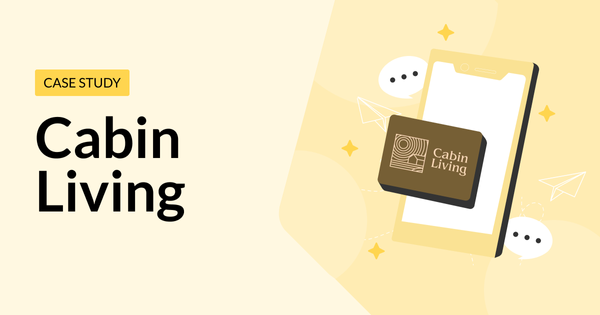What's Driving Airbnb Long-term Rentals and is it right for Your Property?

Airbnb is synonymous with short-term stays. However, long-term Airbnb rentals are another avenue for hosts to explore and leverage.
For guests looking for a home away from home, fully furnished rentals are the perfect alternative to staying put. Read on to find out if switching to a long-term rental strategy might be the better option for you.
What’s Driving Long Stays?
Long-term rentals aren’t necessarily just a travel trend.
Airbnb saw long-term stays of 28 days accounted for 19% of gross nights booked during Q4 2023, according to its recent earnings report, with the company hinting at plans to help make monthly stays a more affordable approach for both guests and hosts.
While the COVID-19 pandemic initially had a big role to play in the uptick in these extended bookings, flexible working arrangements for remote workers are a key factor.
Similarly, Airbnb regulation and strict short-term rental policies are seeing a clampdown on the vacation rental business in certain markets, such as the recent banning of short-term rentals in Barcelona, Spain by 2029, as well as New York towards the end of last year.
What is the Difference Between Long-term and Short-term Rental Stays?
According to Airbnb, a regular short-term stay is fewer than 28 days. Once a stay becomes 28 days or longer, it will count as long-term or monthly Airbnb rentals.
Short-term renters usually look for a quick break or vacation, while long-term Airbnb rentals tend to attract people who are traveling for work, like medical professionals or students.

How Does Airbnb Support Long-term Rentals?
Rentals that offer longer stays will appear for bookings that are 28 days and longer and help distinguish between destinations suited to and destinations for extended stays, only.
The listings of these long-term Airbnb rentals will also list amenities for monthly rentals so guests can live comfortably during their extended stay.
So, why have long-term Airbnb rentals become a focal point?
For guests
Long stays offer guests convenience, cost-effectiveness, and a deeper immersion in their destination. Work-from-anywhere professionals benefit from rentals with home office setups and strong Wi-Fi, while college students and interns enjoy more privacy than hotels and dormitories.
Discounted rates in popular destinations for extended weekly and monthly stays make extended travel economically viable. Settling into a single accommodation reduces the stress of constant packing and unpacking, allowing guests to establish a routine and truly relax.
Plus, as traveling domestically is generally cheaper, travelers can afford to extend their travel dates and stay longer by finding nearby monthly rentals.
For hosts
For hosts, long stays provide a more predictable and stable income with reduced turnover, which is advantageous in fluctuating markets. They also result in fewer gaps between stays, minimizing cleaning and maintenance needs, saving time and money.
Additionally, long-term guests often take better care of the property, leading to fewer damages.
With fewer check-ins and check-outs, hosts can streamline management processes, focus on quality service for fewer guests, and enhance the overall guest experience, encouraging repeat bookings.

A Long-term Rental Strategy
Longer stays bring benefits like higher occupancy, lower turnover, and less work for hosts. These are some of the factors to consider:
Assess Your Rental’s Location
Seasonality within your area is an important factor. Your listing will likely get a lot of traffic and bookings during the high season. In that case, it might only be worthwhile offering a long-term stay during your low season.
Compare Short-stay vs Long-Stay Revenue
Assessing your monthly net revenue over the past year can help determine if a single monthly payment from short-term rentals covers your overhead costs and meets profit margins.
If falling short, long-term renting might increase revenue. To implement a long-stay rental strategy, estimate potential yearly earnings by comparing long-stay rates of similar properties in your area.
Then, compare these potential earnings with your current income from short-term rentals to see if an exact move-in for long-term renting could be more profitable.
For seasonal adjustments, compare net revenue during low seasons with potential long-term rental income.
How to Turn Your Property into an Airbnb Long-term Rental
Before you are ready to start advertising monthly rentals on Airbnb, you first need to change your online listing and make a few changes to your actual property.
To attract guests seeking extended stays, Airbnb allows hosts to offer weekly and monthly discounts. Discounts of 10% or more are highlighted in search results and detailed in the price breakdown on your listing. Here are a few key steps you will need to complete:
To market your rental to guests seeking longer stays, you need to optimize your Airbnb listing. First, enable longer bookings by updating the trip details section to accept stays longer than 28 days.
Set Discounts
Second, set up weekly and monthly discounts, as these will be highlighted to guests in search results and encourage bookings.
Finally, implement a long-term cancellation policy, which offers full refunds for cancellations made within 48 hours of booking and at least 28 days before the stay. Additionally, ask guests to sign a rental agreement to minimize risks associated with extended stays, and include this requirement in your house rules.
Long-term Rental Essentials
Guests looking for long-term rentals are essentially looking for a home away from home, this makes fully furnished rentals a must.
Essential and popular amenities for monthly rentals include things like a laundry machine, a fridge, and a well-equipped kitchen.
Attracting Remote Workers
Working professionals looking for a monthly rental value workstations, good Wi-Fi, and high-speed wifi verification.
Dedicated working spaces should include a comfortable chair, good lighting and ample charging points for remote workers who have to take their office with them. Providing verified internet speeds assures them of reliable connectivity.

Automate Your Rental Property Management
There is no right or wrong answer on whether you should offer long-term rentals to your guests. It all depends on your business needs and your strategy for moving forward. If you’re unsure, you can run a test phase in which you list your rental for long-term occupancy and see if you get any queries or bookings.
Using vacation rental software, such as iGMS, can help you take your rental management to the next level, whether renting for the long or short term.
Offering a full range speed wifi and dedicated amount of functions essential for successful property management, iGMS will help you a direct booking management toolkit, or by creating your own direct booking website in minutes.
Set yourself apart from your competitors and provide better service to guests – give iGMS a try?






